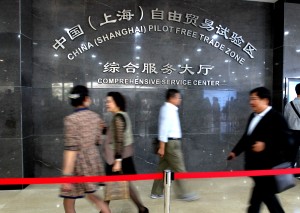Has the pilot reform scheme on the Administration for Industry Commerce (AIC) registration system created a more favourable environment for foreign companies in China? Eight months on from its launch in Shenzhen and Zhuhai, and following a State Council circular simplifying AIC registration procedures, Cody Chen and Rachel Yao from Taylor Wessing say the signs are positive. Official data released by Shenzhen AIC state that in just three months 107,000 new businesses have benefited from the more efficient registration process, representing a 230 per cent year-on-year growth. According to some news agencies this pilot reform could be extended to the whole of Guangdong province by the end of this year.
 Several months ago Taylor Wessing questioned whether the new pilot scheme would lead to easier registration for foreign-invested companies (FICs) in China in the article Going Back to Basics, published in the July/August edition of China Law and Practice. Perhaps it is not surprising that the first draft rules from the State AIC—expressly requested in March by the State Council to be completed by July 2013—has still not materialised.
Several months ago Taylor Wessing questioned whether the new pilot scheme would lead to easier registration for foreign-invested companies (FICs) in China in the article Going Back to Basics, published in the July/August edition of China Law and Practice. Perhaps it is not surprising that the first draft rules from the State AIC—expressly requested in March by the State Council to be completed by July 2013—has still not materialised.
The newly launched Shanghai Free Trade Pilot Zone (FTZ) has demonstrated more positive progress. Its rules on commercial registration partially followed some of the steps taken in Shenzhen and Zhuhai but then moved further and initiated some bold new trials. On 26th September the State Council released Several Opinions on Supporting the Construction of Shanghai Free Trade Zone (Opinions) which specify a number of liberalising measures regarding commercial registration in the FTZ.
At a meeting of the State Council on 25th October, Premier Li Keqiang openly urged nationwide commercial registration reform, advocating the abolition of the minimum capital requirement and time limit for mandatory capital contribution for all types of company (Li’s Agenda).
Registered capital
Current PRC Company Law states that shareholders of a limited liability company must pay the registered capital in full within a two-year period from the issuance of the business license; depending on the type of company, a minimum registered capital of RMB 30,000 (limited liability company), RMB 100,000 (one-shareholder limited liability company) or RMB 5 million (company limited by shares) is required. In practice local governments set much higher levels of registered capital for FICs, although this is not actually written in the regulations.
Companies, including FICs, in Shenzhen, Zhuhai and the FTZ are not subject to minimum capital requirements; the steps of mandatory capital verification and the business registration item of ‘paid in capital’ have also been removed. Shareholders should be granted the freedom to agree a more flexible timetable of capital contribution in the articles of association.
When considering liberalisation of registered capital a concern for the legal profession is that it has no solid legal basis when looking specifically at the aforementioned points in relation to the PRC Company Law and the State Council’s PRC Company Registration Administration Regulations; it could even be argued that it is a violation of the law. The National People’s Congress (NPC), the national legislative body which enacted the PRC Company Law, has not empowered the State Council nor the Shanghai Government to cease (partial) implementation of the PRC Company Law in the FTZ, let alone nationwide.
From a strict legal perspective, the related provisions in the PRC Company Law and the Company Registration Administration Regulations should be amended before any ministerial or local rules are issued simplifying the AIC formalities. This leads us to believe a nationwide AIC registration liberalisation can be reasonably expected when there is an indication to amend such national and State Council regulations.
Following the introduction of simplified AIC registration formalities, investors and shareholders may need to consider related legal implications. For example, how should the capital contribution timetable be realistically and legally formulated in the articles of association, and how to combine this with the related shareholder powers and benefits including, in particular, the right to profit distribution? Is it possible to transfer any equity which has not been fully contributed by the subscribing shareholder? Is it possible to create different classes of equity in the articles of association subject to capital contribution status of the subscribed equity?
 FIC approval vs filing
FIC approval vs filing
In the Shenzhen and Zhuhai pilot rules, the Ministry of Commerce (MOFCOM) and its local arms did not concede too much of its power. The normal FIC approval is still a prior approval before the foreign investor can turn to the AIC for company registration. The Industrial Guidance Catalogue for Foreign Investment (Catalogue) still plays a rather important role in MOFCOM’s approval procedures. This prolongs the FIC setup timetable and creates some problems for foreign investors in the event of differing opinions between MOFCOM and the AIC, for example on the provisions of the article of association or business scope wordings.
The FTZ has employed the newly adopted mechanism of a negative list. For those FICs that are not caught by the negative list, the prior approval requirement is replaced by a filing procedure with the FTZ Administration Committee. A foreign investor wishing to establish a FIC within the FTZ would be able to, after obtaining the name pre-approval from AIC, set up the FIC via a ‘one-stop’ service window and receive, within a short period of time, the filing receipt, business license and other corporate registrations altogether.
Although it is not ideal that filing can be carried out after the FIC has obtained the business license, we still view this as a great step forward in optimising FIC setup procedures in the FTZ. Legally speaking, filing is just a requirement for the investor to notify the authority in writing about the setup and should not be twisted into an administrative licensing.
There is still a long way to go before such a filing practice for FICs is rolled out nationwide. From a legislative perspective, foreign direct investment-related laws first need to be amended by the NPC. Currently such laws are empowered by the NPC to be (partially) suspended for implementation in the FTZ. It remains to be seen if and when the related provisions in such laws are to be amended and therefore become applicable nationwide. We also foresee a political power struggle between different ministerial authorities over the replacement of the Catalogue by a negative list.
Annual inspection vs annual filing
It is inconvenient for existing FICs to carry out the mandatory annual inspections with multiple authorities every year from April to June. Li’s Agenda expressly requests replacing such inspections with annual filing. Although no detailed rules on this are available it can be reasonably expected that the old annual inspection formalities will be substantially simplified.
However, entities may need to rely on additional legal support to perform due diligence before entering into a deal with a business partner; there will be no annual inspection chops on the business license which has long been viewed as an indication of business stability.
Registered capital related criminal offences
Based on the paid-in capital mechanism the PRC Criminal Law provides three criminal offences related to registered capital: false capital contribution, withdrawal of paid-in capital and fraudulent capital registration.
However, through many years of judicial practice these criminal offences are widely viewed by jurists as bad laws. Partly because these penalties do not legally protect creditors as there is no real connection between solvency and registered paid-in capital of a company; partly because these criminal offences were sometimes abused by local government and state-owned enterprises to strike out private business competitors.
Li’s Agenda has clearly called for abolishing the concept of paid-in capital and mandatory capital contribution time limits, and mandatory capital verification processes also look set to be eradicated. One may reasonably expect that such bad laws connected with the old paid-in capital rules will be amended or abolished soon too.
Cody Chen is Senior Counsel at Taylor Wessing in Shanghai. Taylor Wessing is a full service law firm with approximately 900 lawyers in Europe, the Middle East and Asia, with offices in Shanghai and Beijing. For more information please visit www.taylorwessing.com.


Recent Comments